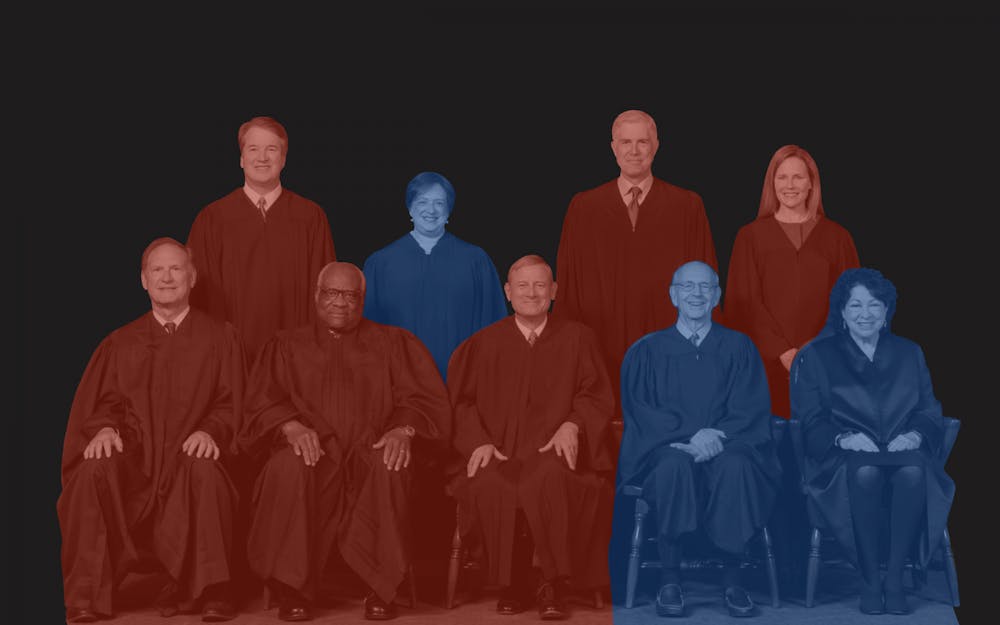Early on in my undergraduate curriculum, I took an introduction to law class. Many political science majors pursue this degree with the intent of attending law school after their undergraduate degree, and at that point in my college career, I had the same notion.
As an introductory course, my professor covered many different legal topics, from international law to the Supreme Court. During the unit covering the latter, he talked about Supreme Court justice ideology.
In this day and age, personal ideology has become increasingly linked to partisan ID. Now, it's rare to find a conservative Democrat or a liberal Republican. As these two spectrums align, it's becoming harder and harder to separate politics from the legal rulings, especially at the federal level.
To be clear, Supreme Court justices aren't bending to the whim of whoever is in power or who nominated them, and they are not taking direction from any other politician for any sort of gain. However, to say that presidents who nominate certain justices do so without political gain in mind is simply false.
This isn't a new phenomenon. Presidents and the party they represent have been doing this for decades. However, as a result of recent political polarization, individual ideology has essentially become a pseudo-predictor of partisanship at this point in our democracy.
During the recent confirmation of Justice Ketanji Brown Jackson, the country saw a slew of Republicans vocally commend Jackson's experience but ultimately vote against her confirmation —including both Indiana senators, Mike Braun and Todd Young.
The basis of this descent was rooted in ideology. Senate Minority Leader Mitch McConnell talked at length about "liberal judicial activism," which judges like Jackson subscribe to, in his statement during her April 7 Senate confirmation.
"There's only one solution —the Senate should only confirm justices who will follow the text of our laws and our constitution, wherever it leads," McConnel said.
Well, I agree, Senator. The only problem is that your party is just as responsible.
So why are we still pointing fingers if both sides are playing by the same set of rules? Trump appointed a total of three Supreme Court Justices during his term, but Republicans obviously took no issue with these nominations, because these Justices were relatively more conservative and would serve the GOP's interests.
Again, Supreme Court Justices are not political officials in nature. But in our nation's recent history, the nomination of these justices has been a political tool used to serve the party in power.
I fail to understand why the Senate keeps wasting our time during these proceedings by complaining about the system which both parties use to their advantage. The Democratic party has increasingly become the party of progressives and will appoint liberal Justices when they can, and the Republican party is now the party of conservatives and will appoint conservative justices when they can.
At this point, I don't know why we don’t consider Supreme Court justices to be a political position. Even though they aren't elected to their positions, they are appointed by politicians to serve, because they share common ideologies and beliefs with these politicians and their party.
Sean Gilley (he/him) is a senior studying political science and economics with a certificate in informatics.




